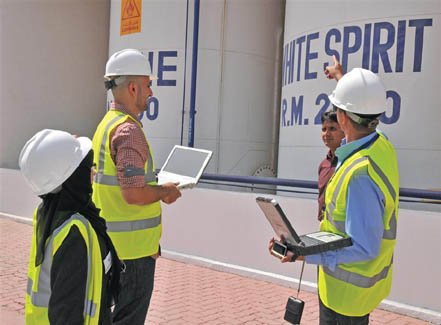ID :
286482
Wed, 05/22/2013 - 13:17
Auther :
Shortlink :
https://www.oananews.org//node/286482
The shortlink copeid
Environment Agency - Abu Dhabi keeps close watch on industrial and developmental projects

Abu Dhabi, May 22, 2013 (WAM)- The Environment Agency - Abu Dhabi (EAD) revealed that it has cited more than 1000 violations in the first three months of 2013.
The EAD is a mandated entity in the Emirate of Abu Dhabi for permitting and inspecting development and industrial projects to ensure their adherence to environmental regulations.
EAD's regulatory enforcement role is aimed at maintaining environmental standards in the Emirate of Abu Dhabi. In defining this regulatory benchmark in the Emirate, not only can EAD minimise environmental impact but also help to improve standards alongside the evolving construction, infrastructure and economic landscapes.
EAD utilises education initiatives, targeted outreach and communications to help permit holders understand how they can work in more environmentally-friendly ways without impacting their business.
In light of this effort, EAD has ramped up its inspection activities to ensure environmental compliance across the Emirate and over the last quarter. It issued 287 environmental permits and conducted 291 inspection visits.
Engineer Faisal Al Hammadi, Permitting '&' Inspection Director of the Environment Quality Sector, EAD said: "We are ramping up our inspection efforts to keep in line with the fast-paced development that the Emirate of Abu Dhabi is witnessing.
We ensure that we are fulfilling our obligation towards the environment not only through permitting, but also by conducting rigorous and random inspections to ensure that the wellbeing of the environment is kept at the heart of operations in both industrial and developmental projects."
The top three most common violations cited by EAD at industrial and developmental projects were: inefficient recordkeeping and staff training; the transfer of hazardous materials and their storage and handling on sites and; safety and emergency response protocols in case of accidents.
The remaining violations observed include the use of combustion units on work sites and the related preparation and processes for their operation; noise pollution as well as; solid waste and waste water management.
To enhance its inspections process, EAD has introduced an innovative system to record and monitor compliance at facilities and projects. It uses the Onsite Assessment, Compliance and Inspection System (OACIS) for the electronic collection, analysis and storage of data. Since its introduction, the system has helped to make the information collation process more time and resource efficient in order to allow EAD to focus on minimising environmental impact across the Emirate.
After EAD's inspectors conduct their inspection visits, recommendations are made on the best mitigation measures a project owner can adopt, which allows the inspection team to work closely with them to assist in making the necessary changes.
To ensure customers are aware of the compliance process, EAD spends time on each compliance visit informing factory owners and developers of their obligations and how to work in more eco-friendly ways.
EAD has published a set of standard operating procedures and guidelines online to help developers, consultants and other stakeholders to stay up-to-date on the environmental permitting requirements and guidelines. – Emirates News Agency, WAM





